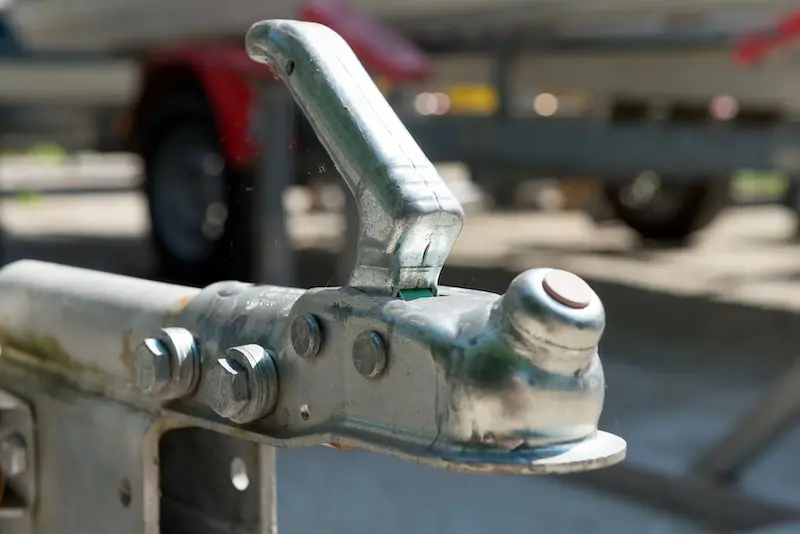
There inevitably comes a time in our lives when the trusty old car we rely on for everyday transportation suddenly feels a tad inadequate.
These moments typically arise during pivotal life events, such as moving to a new house, embarking on a camping expedition, or undertaking ambitious DIY projects that require more than just a trunk's worth of space. It's precisely during these occasions that the humble trailer emerges as the unsung hero, offering that much-needed extra room for your belongings. However, despite the invaluable assistance they provide, trailers remain somewhat of a mystery to many.
Most of us only encounter the need for a trailer sporadically. When the moment does arrive, we often find ourselves in one of three scenarios: borrowing a trailer from a family member or a friend, renting one from a local service, or, in some cases, desperately searching for an available trailer. That's where "Hire My Trailer" comes into play. We're dedicated to unraveling the intricacies of trailer usage, one tip at a time, and we're proud to say that our customers have rated us highly on both Google Reviews and Facebook reviews.
Our journey begins with an essential topic: selecting the right trailer for your specific needs.
This initial step is critical, as it sets the foundation for a smooth and successful towing experience. Depending on your requirements, the type and size of trailer you choose can make all the difference. Let's delve deeper into this subject to ensure you make an informed decision.
Determining Your Trailer Needs:
Your choice of trailer should align seamlessly with the task at hand. Are you moving hefty, bulky objects? In that case, a cage trailer might be your best companion, providing the necessary containment and stability. On the other hand, if your goal is to transport more manageable items like a couch or timber for a DIY project, a box trailer can be a practical choice. The key takeaway here is to avoid the classic blunder of selecting an ill-suited trailer for your cargo. Imagine the nightmare of witnessing your refrigerator soaring through the air on the highway because you opted for a trailer without sides.
- Load Limitations: One of the cardinal rules of trailer safety is ensuring that your load doesn't extend beyond the extremities of the trailer. This rule serves not only to protect you but also to safeguard fellow drivers sharing the road with you.
- Familiarize Yourself with Regulations: Before embarking on your trailer journey, take the time to acquaint yourself with your state's regulations concerning trailers. These rules encompass various aspects, including warning lights, size restrictions, and registration requirements. Compliance with these regulations is essential to avoid legal complications.
- Err on the Side of Caution: When in doubt, opt for overestimation. It's always better to have extra space than to be caught off guard by unexpected additions to your load. For instance, waste and green matter, when stacked, tend to take up more room than initially anticipated. In such cases, cage trailers are a top choice due to their stackability and inherent support.
- Equip Yourself: It's astonishing how frequently people forget to bring essential items like ropes and tarps when using a trailer. These items are indispensable for securing your load properly and ensuring the safe transportation of your items. Additionally, if your vehicle requires a non-standard PIN connector, be sure to include a converter in your equipment arsenal.
- Thorough Trailer Assessment: Before accepting a trailer, conduct a comprehensive inspection. Take the time to check the trailer's maximum load capacity, brake type, and examine it for any existing damage. Does the trailer match the description provided? Understanding the maximum load capacity is of utmost importance as it determines the safe weight limit for the trailer. If you happen to notice any prior damage to the trailer, make sure to notify the owner and document it meticulously. This proactive approach ensures you won't be held liable for any pre-existing issues. A handy tip here is to take photographs of the trailer's condition before putting it to use.
Have we covered all the bases when it comes to selecting the ideal trailer for your needs? Your insights and experiences are invaluable, so please share them with us. Our aim is to create a supportive and informative community dedicated to enhancing trailer knowledge and safety, and your feedback on Google Reviews and Facebook reviews helps us continually improve our services.
If you've found this information helpful and wish to stay updated with our future posts, kindly support us by liking our page and subscribing to our newsletter. Your support fuels our mission to make trailer usage safer and more accessible to all. Thank you for joining us on this journey, and we wish you safe and successful trailer towing experiences.